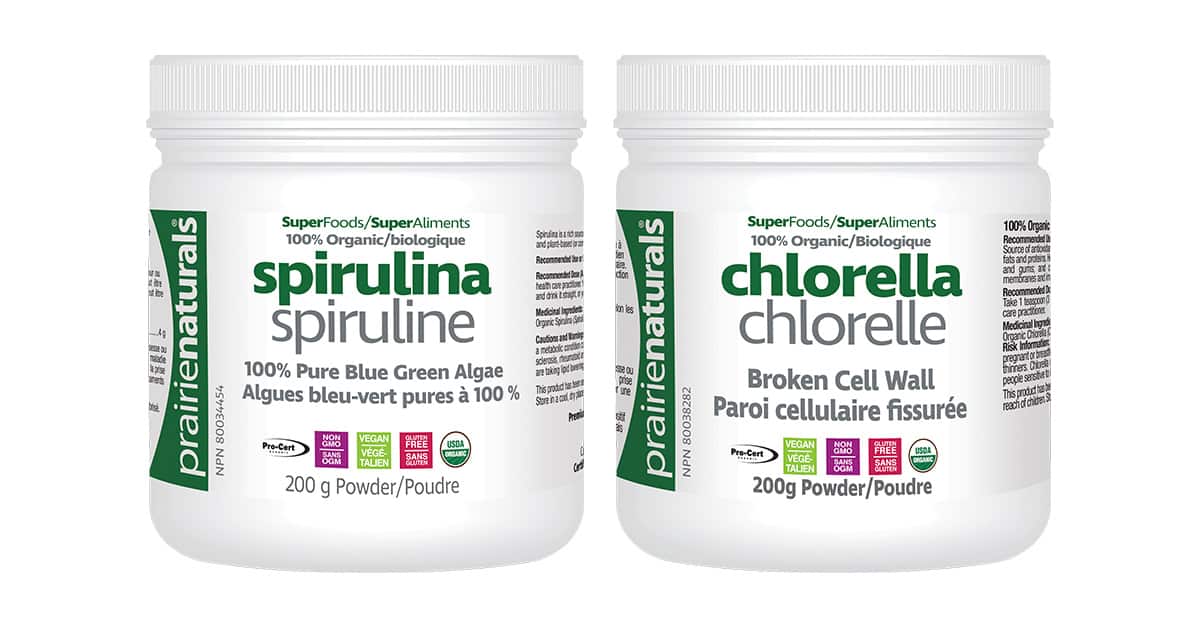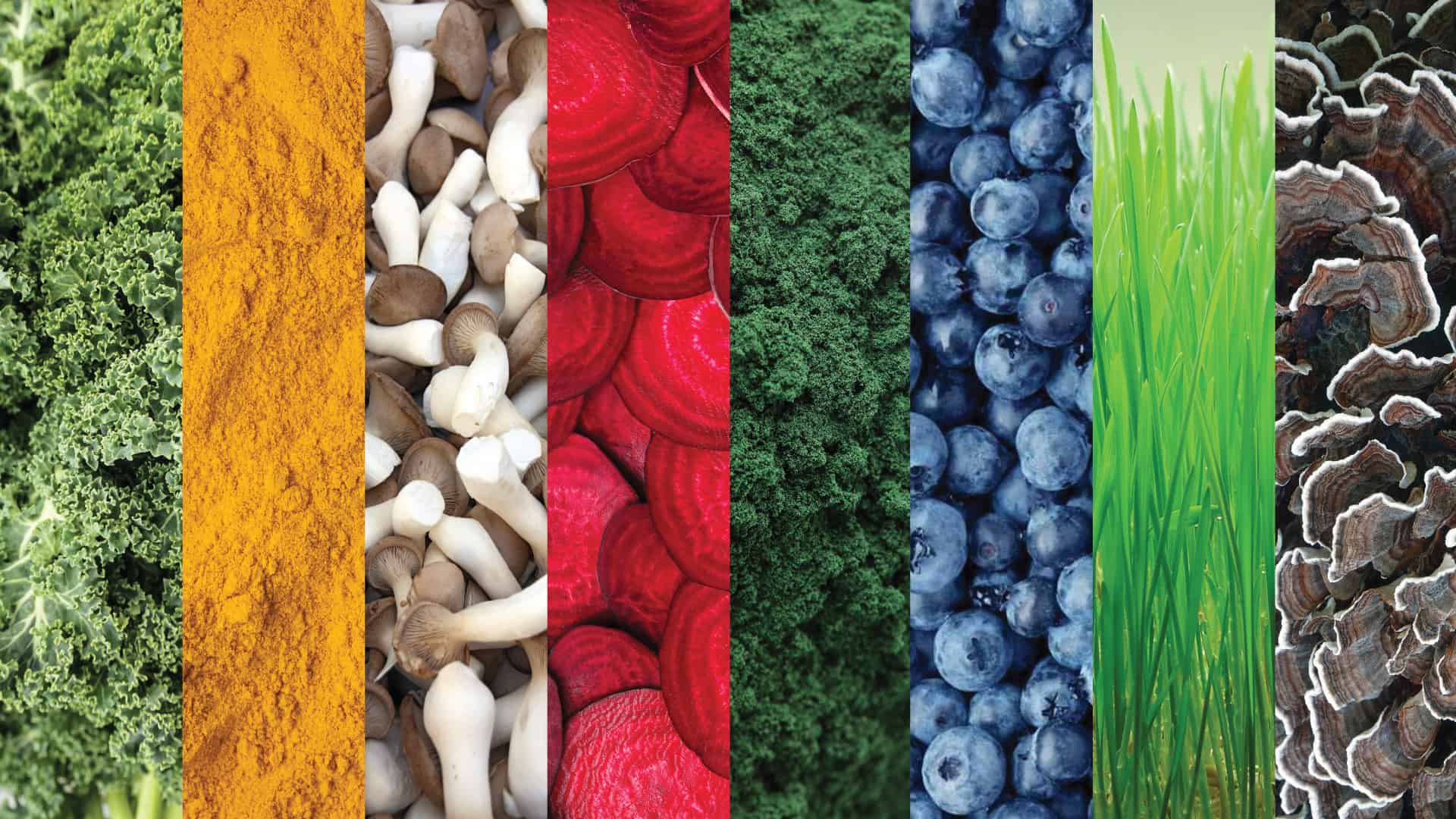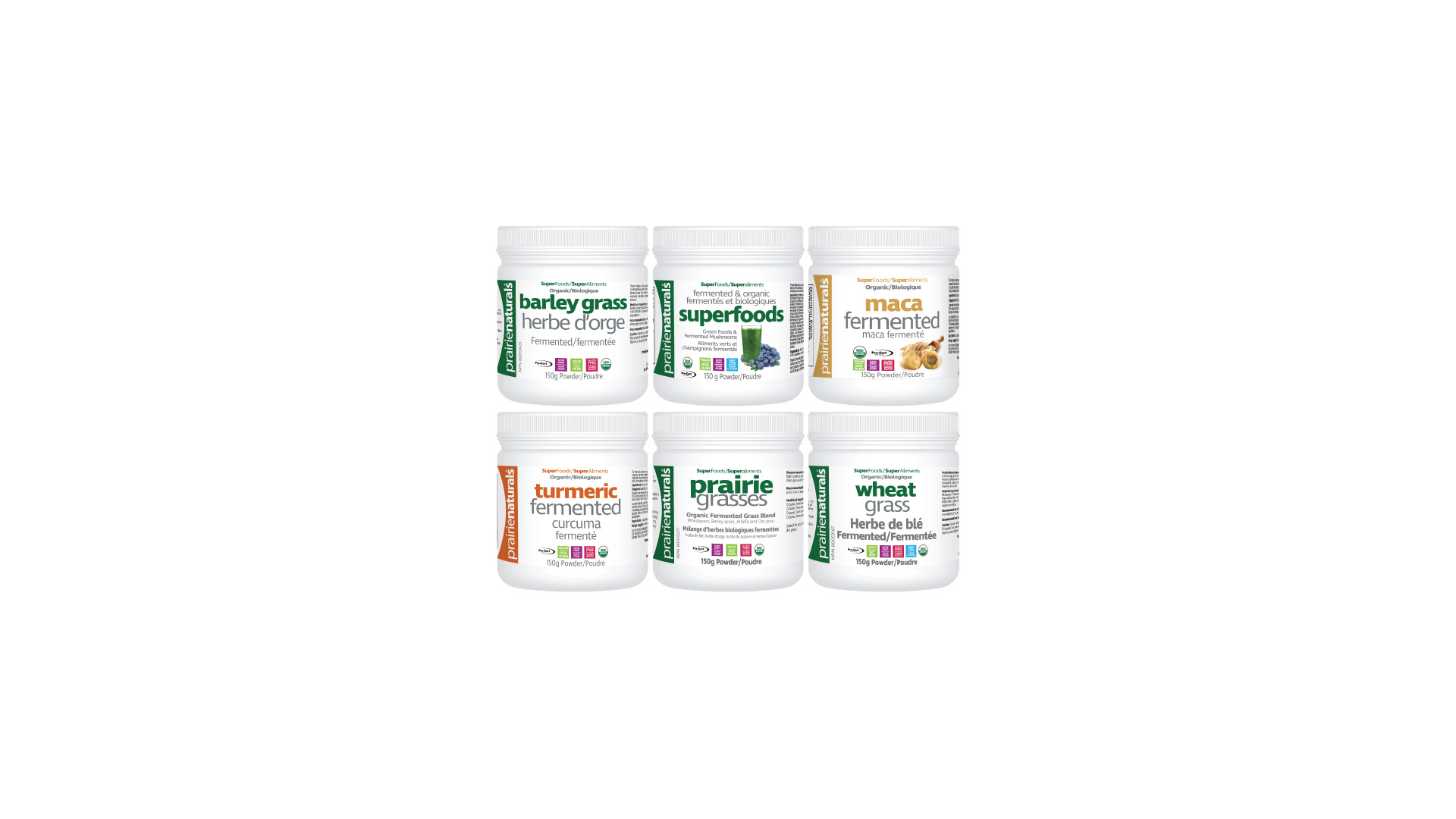While both Spirulina and Chlorella offer an impressive array of health benefits, they each have their unique characteristics that set them apart. Let’s explore the differences between Organic Spirulina and Organic Chlorella!
Benefits of Organic Spirulina:
- Source of alkaline food and a super energizer
- Has neuroprotective effects; reduces brain inflammation
- Controls gut inflammation; acts as a systemic anti-inflammatory agent
- Improves lipid metabolism, reduces cholesterol & triglycerides
- Removes toxins – provides gentle & safe daily cleansing effect
- Protects from ionizing radiation by binding heavy radioactive isotopes
- Helps to prevent macular degeneration and cataracts
- Controls hypertension & increases blood vessel elasticity
- Reduces liver fat, protects liver from heavy metal damage & inflammation
- Helpful for allergies and decreasing nasal congestion, allergic rhinitis
Benefits of Organic Chlorella:
- Excellent for detoxifying heavy metals (e.g., mercury, lead, cadmium) and other toxins
- Protects against ultraviolet radiation treatments while removing radioactive particles
- Lowers blood sugar levels and helps fat metabolism
- Supports efficient elimination, strengthens the gut lining, and boosts growth of beneficial flora
- Helps freshen breath, reduce foul-smelling gas, stools and body odors
- Supports the immune system, resulting in fewer respiratory infections & flu-like symptoms
- Helps to prevent macular degeneration and cataracts
- Promotes cardiovascular health; lowers blood pressure & cholesterol
- Protects the liver from toxic injury (including alcohol), and slows the aging process

Why Choose Organic Spirulina:
- Blue-green spirulina offers a wide rainbow of pigments that harvest the sun’s energy at different wavelengths – green from chlorophyll, blue from phycocyanin, and yellow and orange from carotenoids
- Similar to sea vegetables such as dulse, kelp etc, spirulina is actually a cyanobacteria that contains chlorophyll, it uses the sun as an energy source in the same way as green plants and algae
- One of the most nutritious and concentrated food sources on the planet
- 60% protein – All essential AAs & nucleic acids, highly bioavailable & digestible vegan protein
- Minerals: iron, Ca, Mag, iodine, selenium, manganese, potassium, phosphorus, chromium & zinc
- 6% fats: a source of gamma-linolenic acid (GLA), an important fatty acid for heart & joints
- High in polysaccharides and complex carbs (10-20%); Fibre: 2%, Sugars: 0%, Enzymes (SOD)
- Vitamins (A, E, K, & Vit B’s), antioxidants (carotenoids, zeaxanthin (~5mg/3gm), phycocyanin 12%), sulfolipids
When to Choose Organic Chlorella:
- Chlorella is a spherical single-celled, fresh-water, green microalgae with a nucleus
- Nutrient-dense, micro-algae providing key nutritional elements including a vast array of vitamins, essential fatty acids, protein, polysaccharides, nucleic acids (RNA and DNA), and a vast spectrum of phytochemicals including carotenoids (high in lutein)
- Contains the highest percentage of chlorophyll (the green pigment in plants) of any plant on earth
- A source of protein, even higher and more digestible than animal-derived proteins
- Protein 60% (19 AAs), Fats: 13% (4% Omega-3, no GLA), total carbs 17% with fibre 12%
- Vitamins (A, C, E, K, Vit B’s with bioactive B12 & Biotin), antioxidants (carotenoids, lutein ~3mg/2gm)
- Minerals (potassium, calcium, magnesium, iron, zinc, manganese, copper, selenium, iodine)
_____________________________________________________________
Shop Fermented Organic SuperFoods | View SuperFoods Booklet | View Superfoods Recipes Page
RELATED ARTICLES



